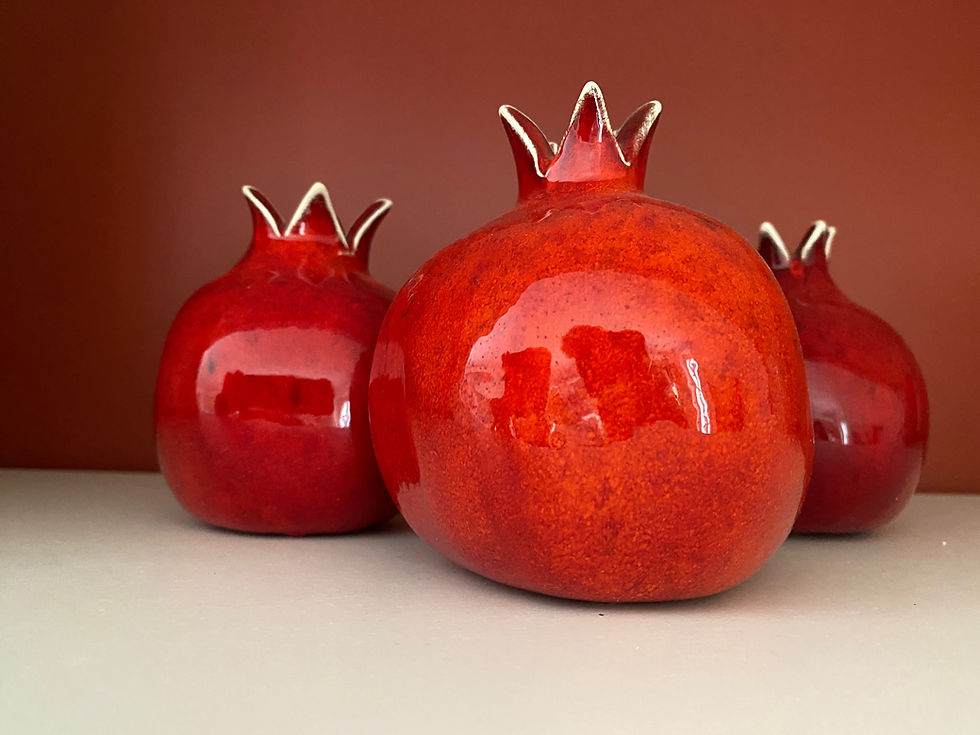St. Cuthbert
- Susan Hagner
- Oct 27, 2023
- 3 min read

Dear Friends,
I was honored to share my icon of St. Cuthbert at Trinity this past Sunday, and am happy to share it here with the wider Trinity community.
St. Cuthbert was born about 630 AD in Northumbria, parts of which we now know as northeast England and southeast Scotland. When he was a teenager, he had a vision one night while tending sheep: He saw angels accompanying a soul to heaven and instinctively knew the soul belonged to Aiden, the beloved Prior of Holy Island-Lindesfarne.
In that moment, Cuthbert decided to dedicate his life to Christian service, and took his vows at Melrose Priory at the age of 17. Within a few years he became the Prior there. In his early 30's, he himself became the Prior on Holy Island.
A respected leader in his own community, Cuthbert became well-known in the world beyond, evangelizing far and wide, healing the sick, and guiding his Priory's Celtic Christian traditions into a new relationship with Roman Christianity. On two occasions, however, he was called away from public life and become a hermit. Accepting God's calling, he moved to a small uninhabited island in the North Sea.
There, Cuthbert enlisted the help of angels to build a shelter and a prayer space, planting whatever would grow in the rocky island soil for food. And he continued his long-time secret practice of praying in the sea at night, which is depicted in my icon.
In my own life I've thought a lot about what it means to embrace isolation and solitude within the context of a community. As an introvert, I need solitude to replenish my energy, and I often feel misunderstood in our more extroverted and over-stimulating culture. After Rev. Nancy introduced me to St. Cuthbert, and after I learned more about him on our trip to Northumberland, I decided to make Cuthbert my personal saint and learn more about what the hermetic life might have meant for him.
Although the brothers of the Holy Island Priory were confused by Cuthbert's abrupt withdrawal from their daily lives, I think he was giving them the gift of space—an opportunity for others to step up to the roles and responsibilities of their communal life. Cuthbert exemplified the notion that our relationship with God supersedes all other relationships. In the course of radically simplifying his life, Cuthbert could see God's creation in a new way, moving among and befriending the creatures of the North Sea during his nightly “swim.” Upon noticing the dwindling numbers of Eider ducks, Cuthbert became a conservationist to ensure their survival.
I recently read this piece by Br. James Koester of SSJE and thought of Cuthbert alone on his island:
“There is a physical space in the Monastery called “the enclosure” that is set apart, into which only members of our community can enter. In the monastic tradition, enclosure is about protection, setting a boundary around certain times, spaces, and experiences, to protect them – much the way a fence around a garden protects what is inside it, so that it can grow.
The purpose of enclosure is not to cut us off from the world, but to create a threshold. The boundary signals that this space or time, at least for us, is different from that space or time. It has been set apart for a particular purpose.
The most precious thing for our monastic community is time when we can be alone and undisturbed before God. I believe that all of us – in a monastery and outside one – need the help of enclosure to sanctify time and space for God. If we are always available to the urgency of email, phone calls, and text messages, to the demands of work, to the lure of entertainment, to the needs of those around us, we will probably never find the room to foster our relationship with God.”
In the icon, Cuthbert faces us, inviting us to spend this kind of time alone with God. Even if for a short time, we all might benefit from regular “enclosure.” Or, a swim in the sea to say a prayer:
O God of peace, who hast taught us that in returning and rest we shall be saved, in quietness and in confidence shall be our strength: By the might of thy Spirit lift us, we pray thee, to thy presence, where we may be still and know that thou art God; through Jesus Christ our Lord. Amen.
Blessings,
Susan Hagner








Comments